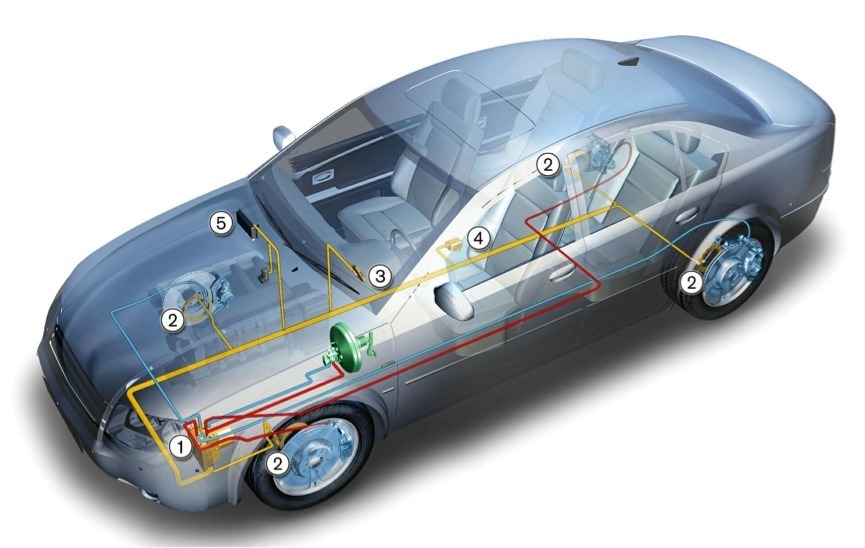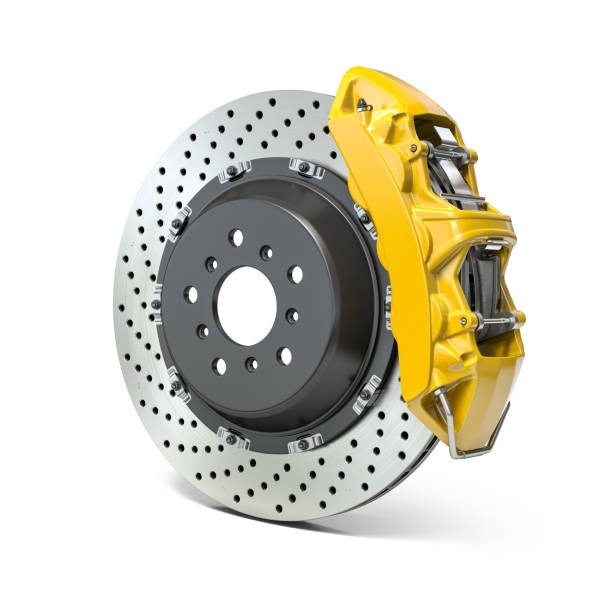BRAKE REPAIR

The Basics Behind Brake Inspection Services
Brakes use friction to bring a vehicle to a complete stop. This friction creates a substantial amount of heat that can degrade the brakes and brake components over time. As a result, inspecting these components and ensuring proper operation has become a critical part of the overall vehicle maintenance. Although brake systems vary from vehicle to vehicle, the components’ responsibility and importance remain the same. Today, some common brake types include drum and disc brakes. Drum brakes contain brake shoes, drums, wheel cylinders, springs, and self-adjusters. Disc brakes contain brake pads, rotors, calipers, and hydraulic components. Depending on the rear brake system’s design, the parking brake assembly, which keeps the vehicle from rolling once stopped, can be housed in either a drum or rotor. All these components, including the brake pedal and brake fluid, should be checked during a brake inspection service to help ensure that a vehicle is safe to operate.
Why Should You Have Brake Inspection Services
Brake inspections are crucial to ensuring safe driving conditions. Determining when to seek an inspection will depend on your driving conditions and preferences. Our brake inspection aims to and diagnose and discuss any issues while recommending brake repair procedures. During a brake inspection, we may discover that your brake system requires new brake pads or shoes or the installation of new brake calipers or wheel cylinders. Alternatively, we may need to drain and replace your old brake fluid to rid the brake lines of air, dirt, and other contaminants. If your brake lines and hoses show cracks or heat damage, we may suggest replacements. To restore maximum braking ability, your disc or drum brake system’s rotors or drums might also need to be replaced. Our methods and items for repair will vary by inspection, so please contact us online or give us a call to learn more about brake maintenance

Description of Brake Repair
A fully functioning brake system is crucial to your safety, the safety of your passengers, and other drivers’ safety on the road. Your vehicle’s brake system involves highly engineered parts and precise movements that stop your vehicle by converting kinetic energy into thermal energy. When you press down on the brake pedal, the master cylinder pressurizes a hydraulic brake system leading to each of the vehicle’s wheels, where brake pads or shoes press against a disc or drum and create the necessary friction needed to slow the vehicle to a complete stop. Over time, this friction and heat can wear down the brake shoes, brake pads, calipers, brake rotors, and other braking components. While the components comprising each brake system may vary, the warning signs for impending brake repairs are the same.
Benefits of Brake Repair
Bad brakes display warning signs for impending brake maintenance. For example, if your brakes squeal or grind when in use, your brake pads may be worn and require replacements. If your vehicle pulls to one side when braking, then this may point to worn brakes, a malfunctioning caliper, or low brake fluid in the brake lines. If your brake pedal presses down too easily—also known as “spongy” brakes—then this may be an indication of too much air in the hydraulic brake lines. Your vehicle’s electronic diagnostic system will sometimes alert you to a potential brake issue by a service indicator light on the dashboard. While these are only some of the most common signs of potential problems with your vehicle’s brake system, noticing these signs of faulty brakes and seeking out a brake service can save you money down the line. Our staff is trained in maintaining and servicing front and rear brake systems and all accompanying brake system components like brake pads, brake shoes, parking brakes, rotors, drums, and hydraulic systems. If you experience any of the above signs or symptoms of bad brakes, like unusual squealing or grinding noises, then contact us online or call us today to have your brakes inspected immediately.
